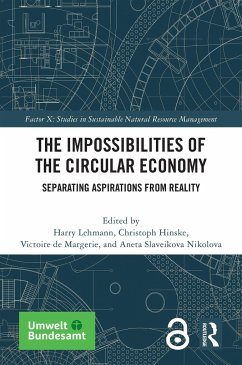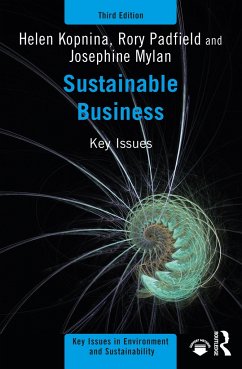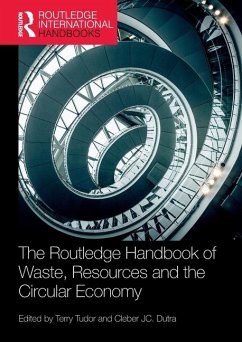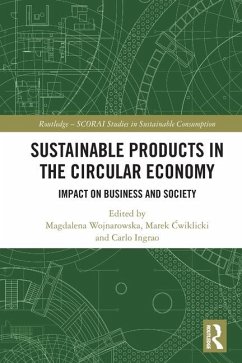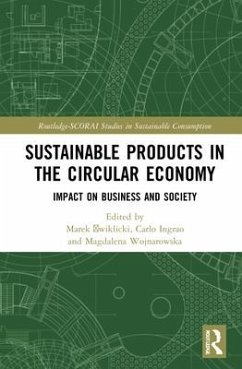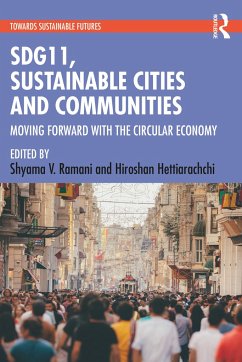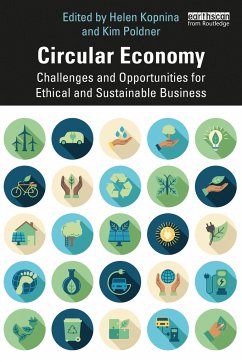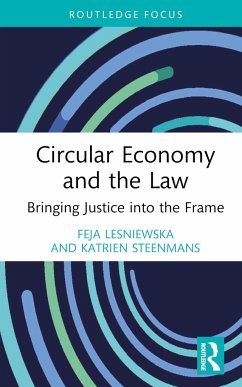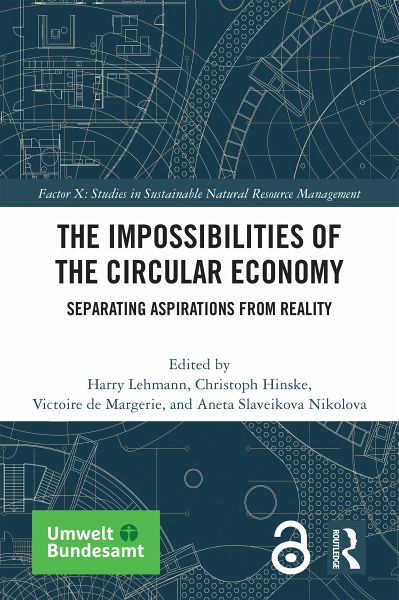
The Impossibilities of the Circular Economy
Separating Aspirations from Reality
Herausgegeben: Lehmann, Harry; Hinske, Christoph; de Margerie, Victoire; Slaveikova Nikolova, Aneta
Versandkostenfrei!
Versandfertig in 6-10 Tagen
43,99 €
inkl. MwSt.
Weitere Ausgaben:

PAYBACK Punkte
22 °P sammeln!
The fifth Factor X publication from the Federal Environment Agency (Umweltbundesamt, UBA), The Impossibilities of the Circular Economy provides an overview of the limits to the circular economy, emphasising the relationship between integrated resource use and more systemic leadership-management approaches.On a European level, the book ties into the recent European Green Deal and aims to empower actors across sectors and EU member countries to transition from existing linear models of value capture and expression to more systemic-circular solutions of value capture and expression. The volume pr...
The fifth Factor X publication from the Federal Environment Agency (Umweltbundesamt, UBA), The Impossibilities of the Circular Economy provides an overview of the limits to the circular economy, emphasising the relationship between integrated resource use and more systemic leadership-management approaches.
On a European level, the book ties into the recent European Green Deal and aims to empower actors across sectors and EU member countries to transition from existing linear models of value capture and expression to more systemic-circular solutions of value capture and expression. The volume provides a hands-on contribution towards building the knowledge and skill sets of current and future decision-makers who face these complex-systemic crises in their day-to-day business. The book further provides access to best practices from cutting-edge research and development findings, which will empower decision-makers to develop a more sustainable and equitable economy.
Providing solutions for a more sustainable economy, this book is essential reading for scholars and students of natural resource use, sustainable business, environmental economics and sustainable development, as well as decision-makers and experts from the fields of policy development, industry and civil society.
The Open Access version of this book, available at www.taylorfrancis.com, has been made available
under a Creative Commons Attribution- Non Commercial- No Derivatives 4.0 license.
On a European level, the book ties into the recent European Green Deal and aims to empower actors across sectors and EU member countries to transition from existing linear models of value capture and expression to more systemic-circular solutions of value capture and expression. The volume provides a hands-on contribution towards building the knowledge and skill sets of current and future decision-makers who face these complex-systemic crises in their day-to-day business. The book further provides access to best practices from cutting-edge research and development findings, which will empower decision-makers to develop a more sustainable and equitable economy.
Providing solutions for a more sustainable economy, this book is essential reading for scholars and students of natural resource use, sustainable business, environmental economics and sustainable development, as well as decision-makers and experts from the fields of policy development, industry and civil society.
The Open Access version of this book, available at www.taylorfrancis.com, has been made available
under a Creative Commons Attribution- Non Commercial- No Derivatives 4.0 license.





